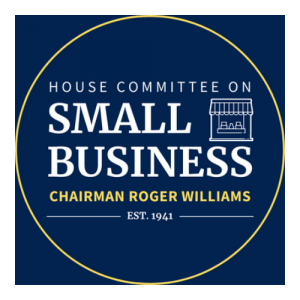SBIA Middle Market Council Chair: “SBICs Help U.S. Manufacturers and Small Businesses Grow and Succeed in Rural America”
Mr. Bastable’s opening statement:
Mr. Bastable: “Our first investment, we approached over 20 banks before finally securing financing -- however, under restrictive terms. That experience revealed a larger truth: small businesses consistently face systematic barriers to growth capital, and those barriers are especially acute in underserved markets. … We are more than capital providers. We are partners. We support our portfolio companies with strategic guidance, operational expertise, and access to networks they may not otherwise ever reach. We help businesses scale, professionalize, and thrive. This is not transactional, it’s relational. Let me be clear, the idea that private equity succeeds when businesses fail is simply false. In the lower middle market success comes from helping small businesses grow into larger, stronger enterprises that create lasting jobs and value.
“Let me give you an example: we invested in a small business called XCaliber Container. We take shipping containers and convert them to ground level offices you might see at construction sites or energy sites. We came into that business and really helped provide financial visibility for the business, expanded benefits, instituting 401(k)s comprehensive health care, tuition reimbursement, and programs for continuing education. We also invested in the infrastructure, [which] included cleaning up and rehabbing old abandoned industrial sites and investing in new capital equipment. …This is what aligned private capital looks like: capacity building, local empowerment, and economic revitalization. Good public policy should expand, not restrict, the capital options available to small businesses. Whether it’s a startup fighting for market share, or a second generation manufacturer navigating succession, or a rural enterprise facing technological disruption, private investment is often the bridge between survival and scale. In today’s climate, where traditional financing is often constrained, private capital is not just helpful, it’s essential. I look forward to working with the subcommittee to ensure small businesses can access this kind of value-added capital that helps them grow, hire, and succeed for the long term.”
Responding to House Small Business Committee Chairman Roger Williams (R-TX) on how private investment helps small manufacturers modernize and the importance of the Investing in All of America Act:
Mr. Bastable: “One particular investment we have in Graham, Texas...they refurbish shipping containers and turn them into ground level offices. And one of the things we did was, we invested in tuition reimbursement for all those employees, we invested in digital marketing, we invested in new manufacturing techniques to help them be competitive in the market. And, as you know, Graham is not a huge city. And so it’s really important that you create the education that’s required for these companies to retain really great talent, and to bring them into the community. ...
“I think the bill that’s been proposed, the Investing in All of America Act, and increasing the leverage for the SBIC program, is one great way to continue to bring capital to manufacturing businesses.”
Responding to Subcommittee Chair Beth Van Duyne (R-TX) on how private equity brings investment to emerging markets and the impact on small businesses:
Mr. Bastable: “When you look at where our companies [are] based -- Dallas, St. Louis, and Fargo -- they’re not traditional finance hubs, and even a city like Fargo, people often ask, why are you in Fargo?...Because there’s great opportunities and it’s an underserved market. And it’s unbelievable the number of opportunities that are seeking capital and just do not have access to capital in those parts of the markets. And one of the things that is just interesting about the lower middle market is, it is a relationship industry. They want to work with people that are committed to helping them grow and share the values of that long-term growth. ... In North Dakota, for example, we invested recently in a garage door manufacturer. We just opened up a rail car servicing location in rural North Dakota, and are planning to open up several more. And these are just examples of opportunities where the larger private equity firms, they don’t often want to fly and travel to these parts of the country because they’re difficult to get to. And sometimes, in reality, it’s hard to find and retain talent and grow in those parts of the market. But with investments in educating the talent and training the talent, there are really great people in those communities who want to work at those businesses and can drive value.”
Responding to Rep. Tony Wied (R-WI) on how private equity helps small manufacturers remain competitive:
Mr. Bastable: “I think one of the things we consistently see with small manufacturers is the lack of access to innovation and new technologies that can help them be competitive with, frankly, foreign products coming into this country. And whether that’s digital marketing, or that’s leveraging new tools with AI, or upgrading their ERP system, or automated manufacturing equipment. Those are things that cost a lot of money. And, you know, at times there are–it’s too much money for those companies to invest in. And so we can come in and really help work with the teams to implement those solutions.”
Responding to Rep. Rob Bresnahan (R-PA) on how private capital serves as a critical tool when interest rates are high:Mr. Bastable: “As interest rates increase, it becomes more costly for them to take on debt to invest in equipment and so on, so forth. And you know, when you have a private equity partner who has access to capital or equity, they can invest in those opportunities, and so they don’t have to make interest payments every time they make an investment into their business.”
Responding to Rep. Morgan McGarvey (D-KY) on the critical role the Small Business Investment Company Program has in expanding access to capital in rural areas and and how the Investing in All of America Act will further strengthen the SBIC program:Mr. Bastable: “The SBIC program is a phenomenal program. And it’s amazing how much capital flows into these rural communities because of that program. And I think the bill, the Investing in All of America Act, and increasing the leverage limit, will continue to drive more capital into these rural communities in the middle of America, where, frankly, it’s a lot of manufacturing industrial jobs where they make products.”
About the Small Business Investor Alliance (SBIA)
The Small Business Investor Alliance (SBIA) is the premier organization of lower middle market private equity funds and investors. SBIA works on behalf of its members as a tireless advocate for policies that promote competitive markets and robust domestic investment for growing small businesses. SBIA has been playing a pivotal role in promoting the growth and vitality of the private equity industry for over 65 years. For more information, visit www.SBIA.org or call (202) 628-5055.

